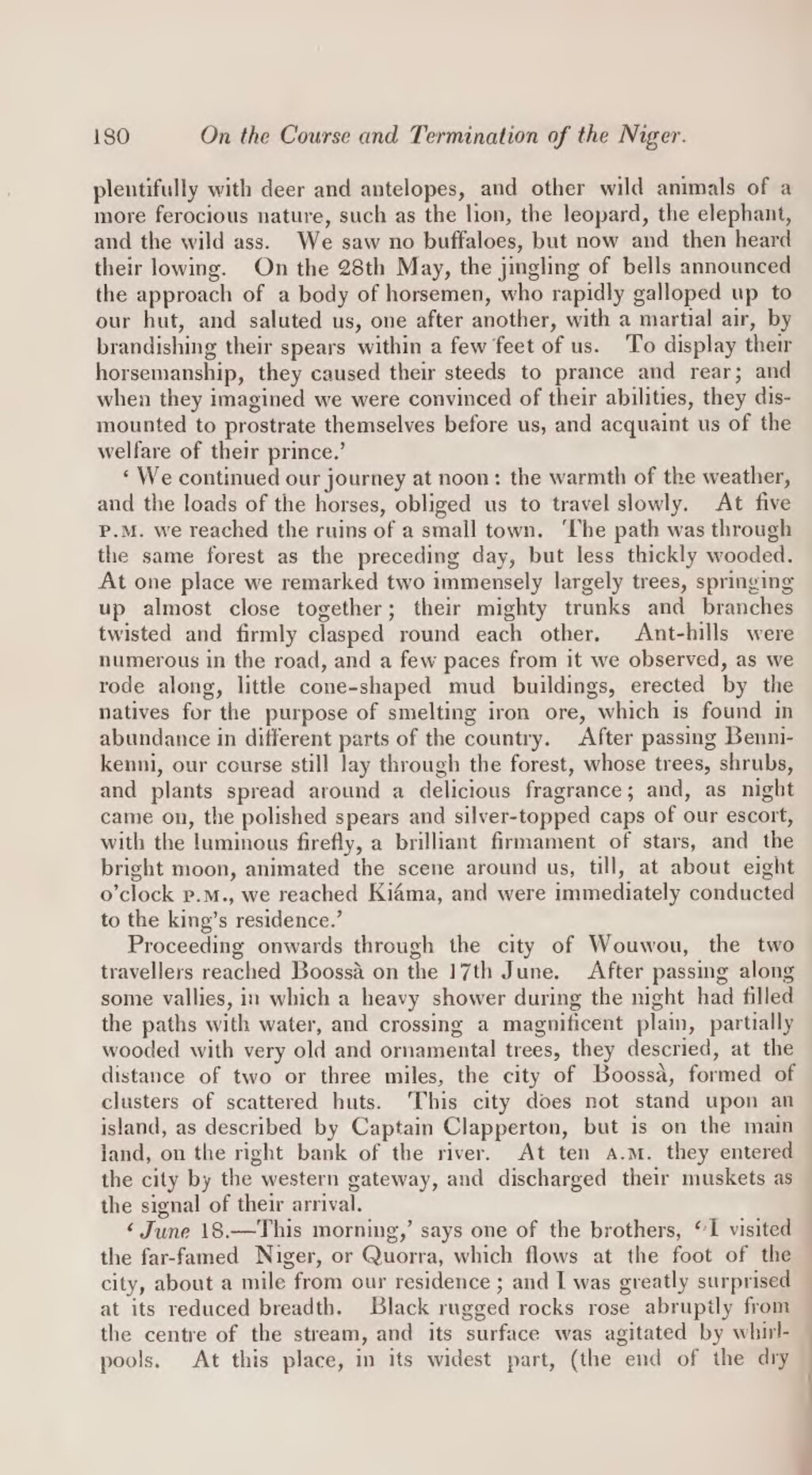plentifully with deer and antelopes, and other wild animals of a more ferocious nature, such as the !ion, the leopard, the elephant, and the wild ass. We saw no buffaloes, but now and then heard their lowing. On the 28th May, the jingling of bells announced the approach of a body of horsemen, who rapidly galloped up to our hut, and saluted us, one after another, with a martial air, by brandishing their spears within a few feet of us. To display their horsemanship, they caused their steeds to prance and rear; and when they imagined we were convinced of their abilities, they dismounted to prostrate themselves before us, and acquaint us of the welfare of their prince.'
'We continued our journey at noon: the warmth of the weather, and the loads of the horses, obliged us to travel slowly. At five p.m. we reached the ruins of a small town. The path was through the same forest as the preceding day, but less thickly wooded. At one place we remarked two immensely largely trees, springing up almost close together; their mighty trunks and branches twisted and firmly clasped round each other. Ant-hills were numerous in the road, and a few paces from it we observed, as we rode along, little cone-shaped mud buildings, erected by the natives for the purpose of smelting iron ore, which is found in abundance in different parts of the country. After passing Bennikenni, our course still lay through the forest, whose trees, shrubs, and plants spread around a delicious fragrance; and, as night came on, the polished spears and silver-topped caps of our escort, with the luminous firefly, a brilliant firmament of stars, and the bright moon, animated the scene around us, till, at about eight o'clock p.m. we reached Kiáma, and were immediately conducted to the king's residence.'
Proceeding onwards through the city of Wouwou, the two travellers reached Boosslà on the 17th June. After passing along some vallies, in which a heavy shower during the night had filled the paths with water, and crossing a magnificent plain, partially wooded with very old and ornamental trees, they descried, at the distance of two or three miles, the city of Boossà, formed of clusters of scattered huts. This city does not stand upon an island, as described by Captain Clapperton, but is on the main land, on the right bank of the river. At ten a.m. they entered the city by the western gateway, and discharged their muskets as the signal of their arrival.
June 18.—This morning,' says one of the brothers, 'I visited the far-famed Niger, or Quorra, which flows at the foot of the city, about a mile from our residence; and I was greatly surprised at its reduced breadth. Black rugged rocks rose abruptly from the centre of the stream, and its surface was agitated by whirlpools. At this place, in its widest part, (the end of the dry
